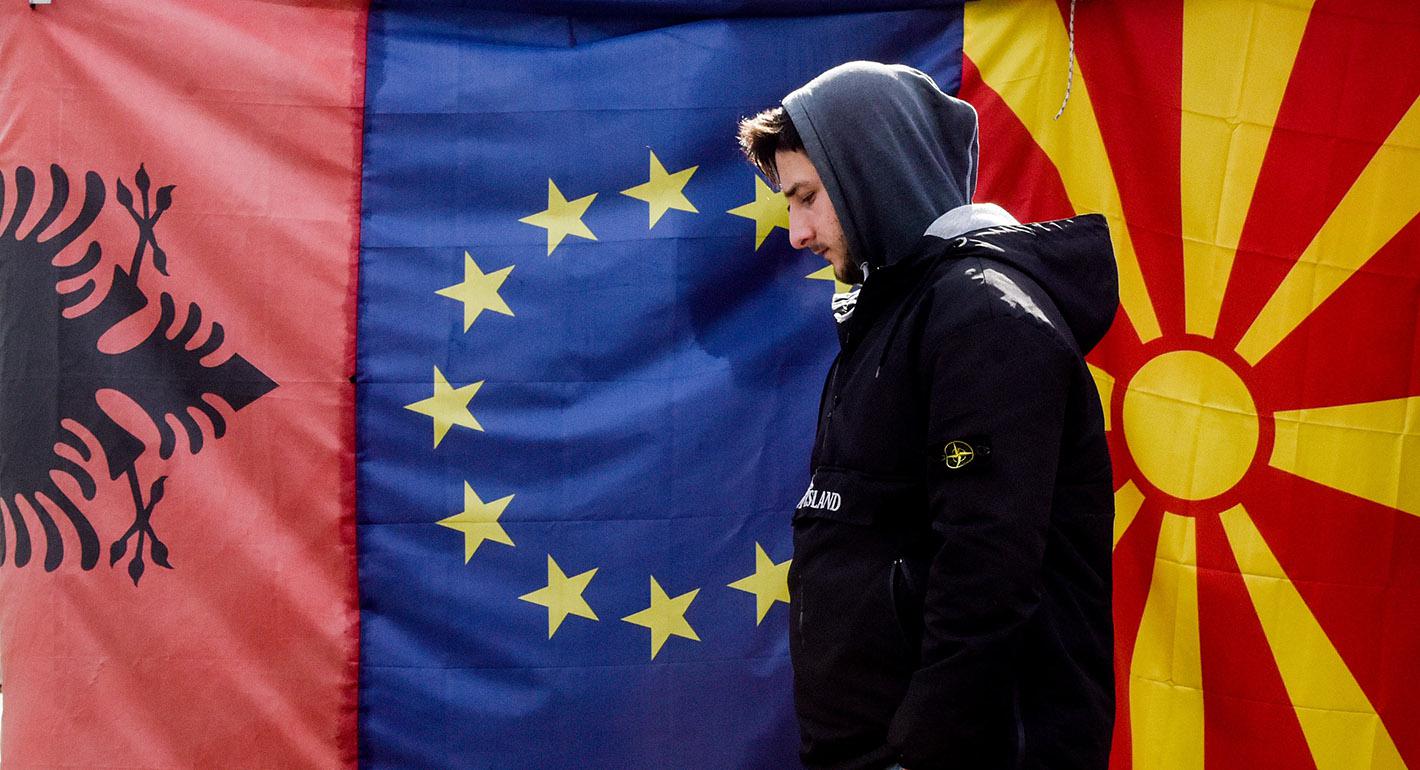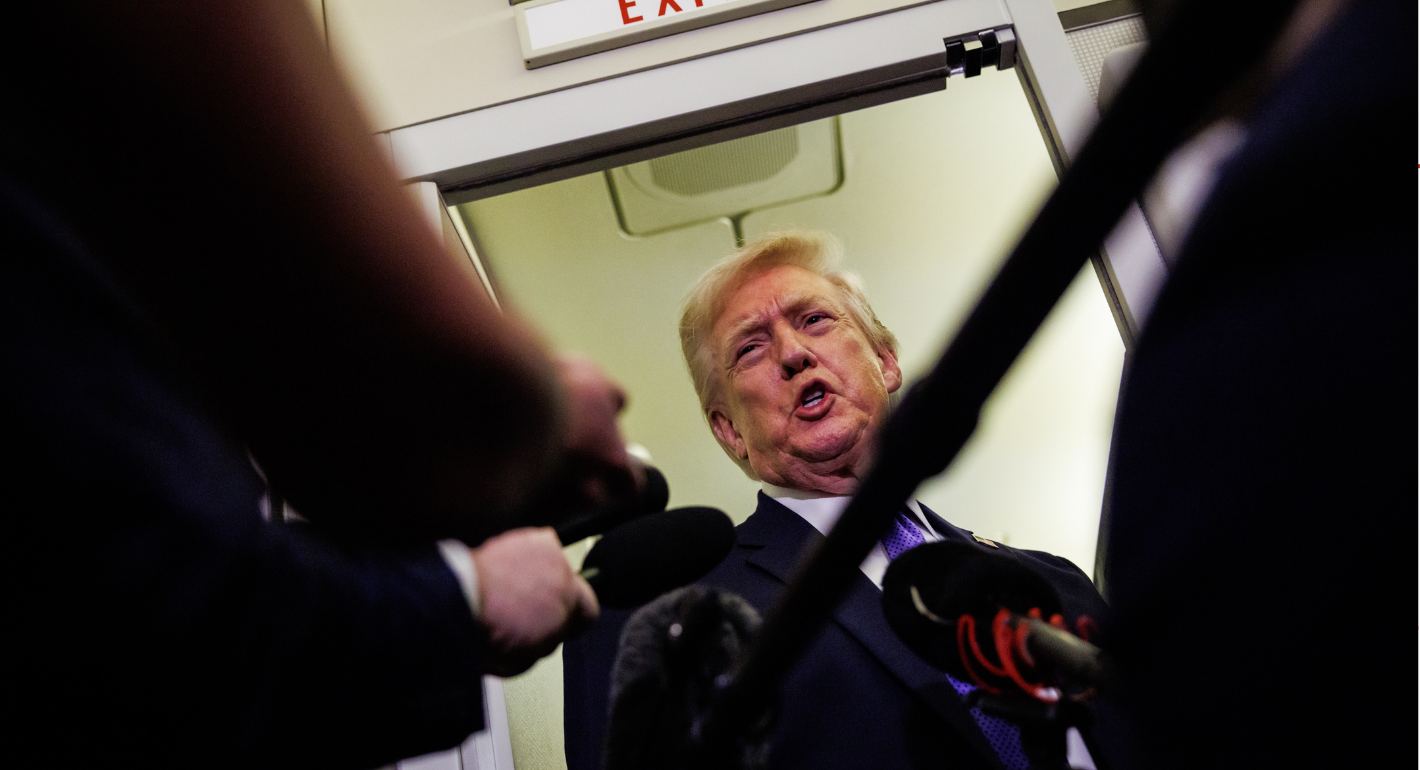The coronavirus pandemic has contributed to undermining not only democracy around the world but also the EU’s credibility in the Western Balkans. That has added to the problems already facing the EU’s lackluster enlargement policy at a time of increasing geopolitical competition. The pandemic has patently illustrated global shifts of power and tested EU foreign policy once again.
Nowhere is this clearer than in the Western Balkans. There, global powers such as China and Russia have used vaccine diplomacy to strengthen their geopolitical roles in the region to the detriment of Western powers such as the United States and the EU.
In the first quarter of 2021, while Washington had an export ban on vaccines in place, EU member states initially struggled to inoculate their own populations and largely failed to deliver vaccines to countries in the Western Balkans. Even though the bloc has managed to turn its vaccine rollout around, the damage inflicted on the EU’s reputation and soft power will have implications for the union’s democracy promotion efforts in the region for years to come. Only a concerted effort among EU member states—with backing from Washington—to support the democracy, economies, and health sectors of the Western Balkans will revive the ailing credibility of the EU’s enlargement policy and help address the geopolitical challenges the union faces in the region.
The Coronavirus and EU Democracy Promotion Through Enlargement
The coronavirus pandemic has had a threefold negative impact on the EU’s efforts to promote democracy in the Western Balkans. First, the crisis has eroded liberal democracy in the region, as national governments have adopted restrictive measures to deal with the health emergency. Second, it has further undermined the EU’s credibility, which was already low before the pandemic, as the union has struggled to contain the crisis within its borders and failed to extend its solidarity to neighboring countries. Third, the pandemic has provided fertile ground for authoritarian powers to fill the void left by the EU and strengthen their influence in the region, boosting support for alternative political models.
The coronavirus comes on the back of a wider crisis of liberal democracy but has also exacerbated it. The pandemic has had a significant adverse impact on the state of democracy around the world by leading to restrictions on fundamental freedoms, increasing the concentration of power with executives, and curtailing the roles of national parliaments. The geopolitics of vaccines is another manifestation of this crisis: authoritarian regimes use vaccine donations in the Western Balkans and elsewhere to undermine Western liberal democracies—or what is left of them.
Although it did not cause it, the coronavirus has accelerated an illiberal turn in the region. Stabilitocrats such as Serbian President Aleksandar Vučić have used the pandemic to strengthen their grip on power. These leaders, who are seen by the West as providing stability while in fact undermining democracy internally, have confirmed trends of democratic backsliding by restricting the freedom of expression, the right to privacy, and press freedom.
The Western Balkans are not the only countries where the coronavirus has had a deleterious effect on the health of democratic systems, as EU countries also testify. However, weaker democracies, such as those in the Western Balkans, are generally more susceptible to authoritarian tendencies and the deterioration of fundamental freedoms than are states with stronger democratic institutions. In the case of coronavirus policy responses, as one study into democracy in times of the pandemic notes, “strong protection of democratic principles already established in ‘normal’ times makes governments more reluctant to opt for restrictive policies.”
Since the pandemic will not be the last crisis to hit the Western Balkans, strengthening democratic quality and the rule of law in the region can moderate the negative impacts of governments’ emergency responses on individual liberties and reduce the likelihood of so-called pandemic backsliding. The EU’s support for democracy in the Western Balkans is therefore needed more than ever. Yet, the EU’s enlargement policy toward the region has languished over the past decade, with little or no progress to report. Credibility has been the main casualty after years of inconsistency and uncertainty; the pandemic has only worsened the situation.
During the coronavirus crisis, the EU’s enlargement policy has continued to disappoint those who hoped that the prospect of accession could counteract the impact of authoritarian forces and geopolitical competition in the region. Despite the EU’s launch of a new enlargement methodology in February 2020 and the bloc’s decision to open accession talks with Albania and North Macedonia in June, negotiations with these two countries have been stalled since December by a Bulgarian veto over a linguistic and historical dispute. At its June 2021 meeting, the EU Council again failed to formally open negotiations with Albania and North Macedonia, striking another blow to the failing credibility of the EU’s enlargement policy.
Elsewhere in the region, progress has also stalled, including on plans to grant visa liberalization to Kosovo, despite the European Commission confirming several times that Kosovo meets all the required benchmarks. And in April, an informal paper on a possible way forward for the Western Balkans, which has been linked to Slovenia’s July–December 2021 presidency of the EU Council, proposed carving up the countries in the region along ethno-territorial lines. That scheme echoed other plans of land swaps, including a late proposal from former U.S. president Donald Trump to solve a long-running dispute between Serbia and Kosovo.
These developments have contributed to eroding the credibility of the EU’s enlargement process and, as a result, the effectiveness of the EU’s democratic conditionality. For instance, referring to the delays in opening accession negotiations with his country, North Macedonian Deputy Prime Minister for European Affairs Nikola Dimitrov asked, “The case of North Macedonia is a test of the EU’s credibility in the Western Balkans: will the EU keep its promises?” A negative answer to his question could be fatal for the EU’s enlargement process. More recently, the ministers of foreign affairs of the trio presidency of the EU—Germany, Portugal, and Slovenia—have called for the EU to deliver on its promises and stressed that “bilateral issues should not hinder progress on a step of such fundamental importance both for the EU and the Western Balkans.”
Adding to the problems facing EU enlargement in the Western Balkans is geopolitical competition, with authoritarian regimes such as China and Russia keen to step in to fill the void left by the EU. Every failure by the union to reward pro-democratic forces in the region and display solidarity with them provides another opportunity for anti-democratic forces to strengthen their influence.
The battle of narratives witnessed at the global level over the past year has been particularly intense in the Western Balkans. And the EU seems to be failing here, too. As acknowledged in a March 2021 letter by nine EU foreign affairs ministers to EU foreign policy chief Josep Borrell, “while the EU has mobilised massive amounts of support to the region, other actors were more effective in presenting their support and thus undermining our reliability, credibility and perception of our solidarity.”
Vaccine Geopolitics in the Western Balkans and the EU’s Declining Soft Power
Vaccine geopolitics illustrates this point well. One of the regions worst hit by the coronavirus, the Western Balkans have experienced some of the world’s highest excess death rates, especially in Bosnia and Herzegovina, North Macedonia, and Serbia. It is not surprising, then, that these countries have desperately sought to protect their populations, not only by trying to secure supplies of coronavirus vaccines through the World Health Organization’s COVID-19 Vaccines Global Access (COVAX) mechanism, but also by turning to other suppliers. China and Russia have not wasted the opportunity to step up their roles and have used coronavirus vaccines to strengthen their positions in the region.
While China’s and Russia’s engagement in the Western Balkans predates the pandemic, a perceived lack of solidarity from the EU and its member states—both in the early stages of the crisis and in the later vaccine rollout—has provided a new impetus for Beijing’s and Moscow’s geopolitical games. In the initial stages of the pandemic, Vučić criticized a lack of supplies of protective equipment from Serbia’s European partners; he was keen to point out that “European solidarity does not exist. It was a nice fairy tale.” Vučić highlighted that only China could help Serbia, and this was followed by the installation in Belgrade of billboards with the message “Thank you, brother Xi” in praise of Chinese President Xi Jinping. China’s so-called mask diplomacy was particularly successful in undermining the EU’s soft power in Serbia and other countries in the region, despite some suspicions about Beijing’s increasingly aggressive “wolf warrior” diplomacy.
The vaccine rollout has provided China and Russia with another opportunity to increase their influence. Serbia has become the epicenter of vaccine geopolitics in Southeastern Europe. In fall 2020, Belgrade struck deals with the Chinese vaccine manufacturer Sinopharm, which has delivered over 2 million vaccine doses since the start of 2021. Together with other deliveries from the Russian-produced Sputnik V and Western vaccines, this move has put Serbia among the countries with the highest rates of fully vaccinated people: 36 percent of Serbia’s population was fully immunized as of June 24, 2021. Moreover, Belgrade has signed deals to start producing the Sinopharm and Sputnik V vaccines in Serbia later in 2021, which could make the country one of the main supply hubs in Southeastern Europe.
Serbia has also capitalized on its successful vaccine rollout and deployed its own vaccine diplomacy in the region by donating doses to Bosnia and Herzegovina and North Macedonia and opening its vaccination centers to third-country diplomats and foreigners for free. Yet, low trust in political institutions and conspiracy theories have dented Serbia’s vaccine program to the point that Belgrade had to resort to offering a financial incentive to its citizens to have a coronavirus vaccine. Meanwhile, other countries in the region have criticized the slow arrival of deliveries from the COVAX mechanism or tried to strike their own deals with China or Russia. The only exception is Kosovo, which has preferred to use only vaccines approved by the European Medicines Agency and rejected donations of the Sinopharm vaccine from Albania.
The EU has continued to support the Western Balkans in their fight against the coronavirus, but most of these efforts have gone unnoticed by the countries’ publics. Together with the European Investment Bank, the EU helped mobilize over €3.3 billion ($4 billion) to support responses to the health crisis and its socioeconomic effects. This package included €762 million ($924 million) targeting socioeconomic recovery and €70 million ($85 million) to help Western Balkan countries access vaccines procured by EU member states. The union was also behind the launch of the COVAX initiative, which is due to supply over 5 million vaccine doses to Western Balkan countries. Together with its member states, the EU is one of the mechanism’s main donors.
Despite the initial slow vaccine rollout across the EU and a row between the bloc and pharmaceutical company AstraZeneca about supplies, the EU has become one of the world’s top vaccine exporters, making the union “the pharmacy of the world,” according to European Commission President Ursula von der Leyen. On April 20, 2021, the commission announced the conclusion of an agreement, brokered by Austria, to deliver 651,000 BioNTech/Pfizer doses to the Western Balkans by August. Another deal with Pfizer for up to 1.8 billion doses should ensure that the EU has surplus vaccine shots to donate to countries in the region. Yet, the EU’s lack of a positive narrative or an effective communication strategy has undermined the union’s soft power, not only in the Western Balkans, but also globally.
Rethinking EU Democracy Promotion in the Western Balkans
While the EU has acknowledged the need to adopt a more geopolitical approach at the international level, its policy on the Western Balkans has failed to provide a credible alternative to the authoritarian, illiberal model represented by other powers. The EU’s approach has also been overly technocratic to date. In particular, the waning credibility of the EU’s accession perspective has dented the union’s ability to foster democratic reforms in the region and provided an opportunity for China and Russia to step in. The EU’s reputation has suffered not only from the politicization of enlargement and bilateral disputes but also from the rise of illiberalism in the EU itself, which has eroded any transformative power the union was able to exert before.
How can the EU counter the increasing influence of Beijing and Moscow in the region and turn the tide on the current illiberal shift? A stronger commitment to liberal values in the EU and among Western powers more generally would go some way to restoring credibility and confronting the global battle of narratives.
This should be made easier for the EU by the stronger commitment to democracy espoused by the administration of U.S. President Joe Biden. A united front by the EU and the United States would do much to address the region’s challenges, especially after the divisions witnessed during the Trump administration. Strong support from Washington for the EU-mediated Belgrade-Pristina dialogue could be a good first step in restoring the West’s reputation in the region. There is also room for more and better coordination to tackle other threats to democracy, including corruption and state capture. For instance, the EU should back the June 2021 decision by the Biden administration to introduce legislation targeting people who contribute to destabilizing the Western Balkans and should adopt similar measures.
The EU’s enlargement policy has a lot of lost ground to make up in the Western Balkans in terms of credibility. For this to happen, clear progress toward EU accession remains critical, especially for Albania and North Macedonia, which have so far fulfilled their sides of the deal. The same goes for visa liberalization in Kosovo. National governments will only undertake painful reforms if they have assurances that the EU will keep its promises. It is essential for the forthcoming Slovenian presidency of the EU Council to achieve progress on these two issues if the credibility of the EU’s enlargement policy is to be restored.
Publics in the Western Balkans also need to remain convinced that the EU—and its political system—can provide concrete solutions to their problems. Specific acts of solidarity are therefore particularly important; this includes mobilizing financial resources to fund infrastructure, health services, social care, and other projects that matter to people. At the moment, vaccines are a key priority for citizens in the region, where inoculation rates are still significantly behind those in EU countries. Therefore, the EU needs to prioritize this area, especially now that the EU’s own vaccine program is working at speed. Good communication is also acutely important in a digitized world. The EU has a good story to tell, but it should do better at communicating this story with empathy.
Finally, while one should never underestimate the EU’s resilience when it comes to dealing with a crisis, as the vaccine episode demonstrates, this is not enough in a context of geopolitical competition. The EU cannot afford for others to fill the gap while it puts its own house in order, as this only benefits those who want to portray democratic systems as too slow and too weak. Unless the EU can grasp this strategic challenge, the future of democracy in the Western Balkans remains uncertain.
Ana E. Juncos is a professor of European politics at the University of Bristol.
This article is part of the European Democracy Hub initiative run by Carnegie Europe and the European Partnership for Democracy.









